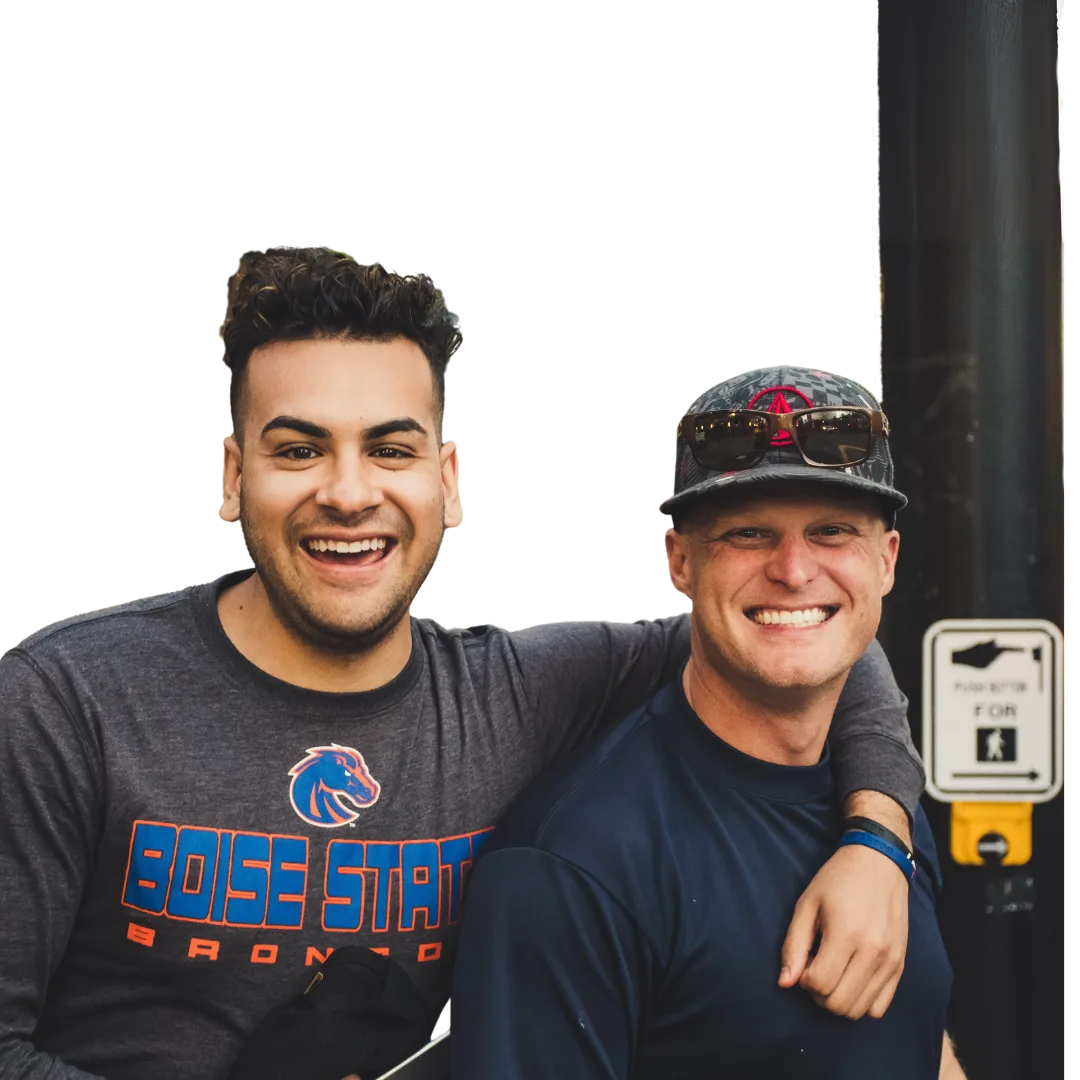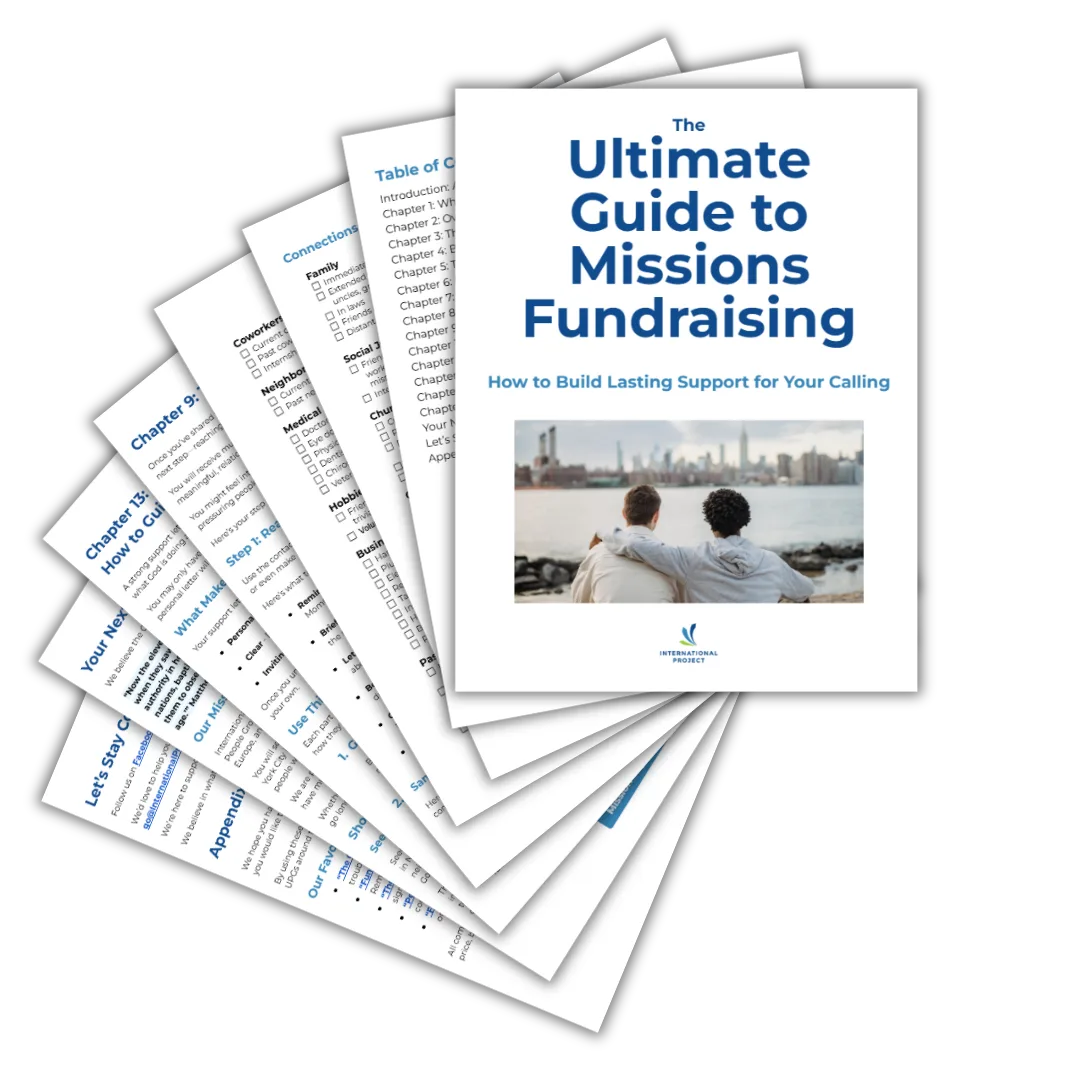What do missionaries do around the world? Across cultures, they share the Good News of Jesus in countless ways.
When you join a missionary training program, you learn how to live and work effectively in new contexts.
Whether you’re an aspiring missionary, a financial or prayer partner, or just curious about missionary life, this blog is for you.
You’ll find answers to your questions like:
- What do missionaries do every day on the mission field?
- What daily tasks contribute to mission work?
- What does it take to live the lifestyle of a missionary?
Let’s explore what happens between the airport and the altar call in a missionary’s daily life.
What Do Missionaries Do and Why?
Christian missionaries work to carry out the Great Commission by sharing the Gospel across cultures.
The Great Commission is the command that Jesus gave His disciples before He ascended into Heaven.
Jesus commissioned His followers to take the Gospel to every nation.
Matthew 28:18-20 captures this moment, “Therefore go and make disciples of all nations, baptizing them in the name of the Father and of the Son and of the Holy Spirit, and teaching them to obey everything I have commanded you.”
Those verses highlight 3 key tasks Jesus gave His followers
- Make disciples of all nations (evangelism)
- Baptize new believers
- Teach new believers to obey Jesus’ commands (discipleship)
Mission agencies may emphasize different methods, but they share the same goal—help non believers hear the Gospel, be baptized, and grow as disciples.
Medical missionaries, for example, offer medical care to minister to those in need. Health clinics meet practical needs that can open doors for Gospel conversations.
Other missionaries devote themselves to church planting and strategically discipling leaders of indigenous churches.
Why the Focus on UPGs?
In recent decades, there has been a shift in which Christian missionaries focus on making disciples through Unreached People Groups (UPGs).
UPGs are ethnolinguistic groups with limited or no access to the Gospel.
We consider a people group unreached when there is no indigenous community of Jesus’ followers able to engage this people group with church planting. Technically speaking, in an Unreached People Group (UPG), less than 2 percent of the population actively follows Jesus.
The Apostle Paul focused his ministry on people still waiting to hear the message of Jesus Christ.
In Romans 15:20, Paul states, “It has always been my ambition to preach the gospel where Christ was not known, so that I would not be building on someone else’s foundation.”
Prioritizing UPGs is both Biblical and strategic. Global migration brings many diaspora people to the United States. Here in America, these diaspora UPGs have the freedom to hear about and accept Jesus as their Savior.
Many UPGs come from countries where sharing the Gospel is illegal. When people follow Jesus in the US, they can return home to share the Good News with their families. These relational connections allow the Gospel to flourish in nations “closed” to missionaries.
Now that you understand the strategy behind what missionaries do, let’s see how they work to accomplish these goals on a practical level.
What Do Missionaries Do for Ministry?
Effective ministry flows from intentional routines and spiritual practices that guide daily life on the mission field. When it comes to outreach, there are several practices common to most missionaries.
Here are some examples of specific things missionaries do relating to ministry:
Prayer and Worship
Christian missionaries maintain a strong personal relationship with God to anchor their service. As a missionary, you will need to rely on the Holy Spirit for wisdom, guidance, and open doors in your ministry.
In Acts 1:8, Jesus told His disciples, “But you will receive power when the Holy Spirit comes on you; and you will be my witnesses in Jerusalem, and in all Judea and Samaria, and to the ends of the earth.”
At International Project, we strongly encourage our missionaries to spend an hour a day in worship and prayer. Personal connection with the Lord will strengthen you in times of challenge and encourage you to keep pursuing God’s calling on your life.
Outreach
Outreach is often the first task people think of when considering missionary work.
The Book of Acts gives examples of different ways the apostles engaged in outreach, including:
- Sharing their personal testimonies
- Performing miracles and healings in the name of Jesus
- Encouraging and discipling new believers
Despite differing methods, the apostles’ work focused on sharing the Gospel.
Acts 5:42 summarizes the heart of their ministry, “Day after day, in the temple courts and from house to house, they never stopped teaching and proclaiming the good news that Jesus is the Messiah.”
International Project missionaries engage in similar outreach work, including:
Broad Sowing Evangelism
Our missionaries share the Gospel through street evangelism and spiritual conversations with neighbors.
We go where people gather—markets, parks, and community spaces—to initiate conversations. These moments build trust and open doors for ongoing discipleship.
We also offer services like community thrift stores, life skills classes, crafting, and more to foster opportunities to share the Good News of Jesus Christ.
Hosting English Conversation Groups
We strategically host English conversation groups to offer practical help to diaspora people. These groups create consistent opportunities to build relationships and open doors to share Scripture.
Facilitating Discovery Bible Studies
Missionaries facilitate Discovery Bible Studies to introduce UPGs to the Bible in their heart language.
Spiritually curious participants explore Scripture and the Gospel in a simple, engaging way. The DBS method offers a natural path to disciple non believers to Christ!
These outreaches aim to see God raise up indigenous churches of UPG believers committed to Christ and teaching others.
Discipleship
Our work doesn’t stop after baptism! We help new believers grow in their faith through mentoring, house church, leadership training, and more!
New believers learn to read the Bible and obey God’s commands. They learn to listen to and lean on the Holy Spirit for wisdom and guidance in their new walk of faith.
We don’t just want to plant churches among the unreached, we want to plant churches through them so they can be the ones to spread the Gospel throughout their own people. So we empower them with the Discovery Bible Study Method and other tools.
Train Others
As a missionary, you will disciple and teach others to grow in spiritual maturity. Missionaries often work to mentor new believers and short term mission teams in how to effectively share the Gospel.
Our long term missionaries model hands on evangelism strategies on Mission Trips for Teens, as well as adults on Seed Week Mission Trips.
Likewise, missionaries at International Project mentor college students in our Summer Missions Internship and adults in our Equip Missionary Training Program.
Missionaries do many things, but you will always work to multiply!
Our goal is to see more and more people take up the work of the Great Commission and make Jesus known to those who have never heard.
You’ve just seen some examples of day to day missionary work, but the truth is, missionaries do much more than that!
Read on to learn what missionaries do to strengthen the foundation of their daily ministry.
What Do Missionaries Do Daily behind the Scenes?
Missionary work will differ depending on whether you serve in Nepal, Ukraine, or Uganda. A missionary’s schedule will also differ depending on the organization you serve.
If you’re an aspiring missionary, ask your Christian mission agency or denominational mission board for examples of typical daily tasks on the mission field.
There are some things missionaries do and ways they invest their time that you might not know about.
Here are some examples:
Connect with Your Ministry Partners
Christian missionaries never work alone! Missionaries partner with God and other Christians to see the Gospel proclaimed among UPGs. These partners provide prayer and financial support for your ministry.
Partnership development (also known as support raising) is an important part of your mission. It starts from before you go to the mission field and continues throughout your season of missionary service.
As a missionary, you regularly communicate with your local church and other partnering congregations to share testimonies and prayer requests from the ministry. Your supporters truly are your partners in missionary work!
Related: How To Raise Support as a Missionary
Schedule times to pray for your ministry partners and let them know how they can pray for you. Keep your supporters informed through emails, texts, or video updates, and thank them regularly.
Paul’s epistles in the New Testament are a great example of how to communicate well with your ministry partners. You can see that Paul celebrates God’s work, while also being honest about his own struggles.
Take Philippians 1:12 and 14, for instance. Paul writes to the church: “Now I want you to know, brothers and sisters, that what has happened to me has actually served to advance the gospel…because of my chains, most of the brothers and sisters have become confident in the Lord and dare all the more to proclaim the gospel without fear.”
Your ministry partners can only pray and support you well when they know what’s happening—so stay in touch to let them know how they can pray!
Cultural Learning
As a Christian missionary, you’ll spend significant time learning the culture of the people you want to reach. You may study the cultural traditions and religious practices of a people group to better understand their worldview.
To better understand a UPG culture, you can attend community cultural events and celebrations. Pro tip: Cultural events are easier to find during key holiday seasons like Lunar New Year (Buddhism, Taoism), Eid (Islam), or High Holy Days (Judaism).
Although International Project doesn’t require fluency in a foreign language, you may find it helpful to learn conversational basics in a new language. Some of our missionaries find it helpful to formally study the language of their international neighbors, at least for a short period.
When you take time to learn the culture of the people you want to reach, your new international friends will appreciate your investment and interest!
Traditional “9-5” Roles
Did you know some missionaries work multiple jobs? If you’re a tentmaking missionary, you may spend most of your time working in a paid role that uses your professional skills, while also engaging in evangelism and discipleship within your community.
Common bivocational ministry jobs include teaching English, serving in health care, or working in international business. Bivocational missionaries build on the relationships they make through their traditional jobs as a way to minister to others.
Adjust to Change
Many new missionaries are unprepared for how much time they spend adjusting to the mission field.
When you make an extreme change to your lifestyle, you will likely need more sleep than you normally would.
You may also find yourself fighting illness more as your body adjusts to new foods and a different environment. It takes time to recover from illness and develop healthy habits on the mission field!
Missionaries also need to account for time regarding travel issues like jet lag. Even after you’ve been on the mission field for a long time, you will still need to plan for adjustment periods when you travel between the mission field and your home for ministry fundraising.
What Missionaries Do Starts with You
God is still calling people to share His love with the nations. Maybe He’s calling you!
You can live a lifestyle of ministry and see what missionaries do in Equip—our 10 month missionary training program in New York City.
Gain hands on experience in evangelism, discipleship, and church planting in UPG neighborhoods right here in America!
If you sense God may be calling you to missions, fill out the form below to learn more about Equip in New York City.
The nations are closer than you think—take your next step today!
Sign Up For More Info
Get Missionary Training Program Details and Next Steps!
We respect your privacy.🔒 Your email will only be used to send Equip Missionary Training info and our related updates—unsubscribe anytime!



